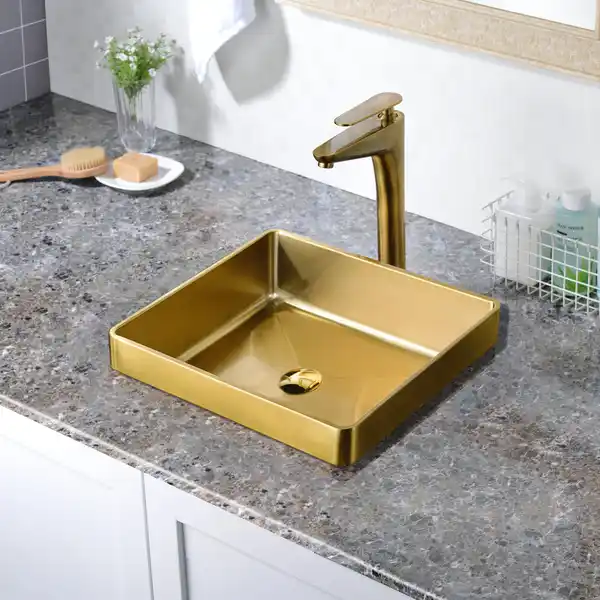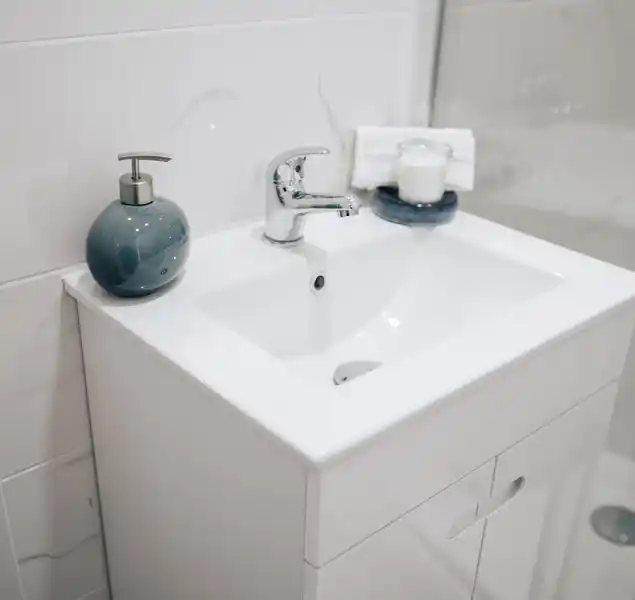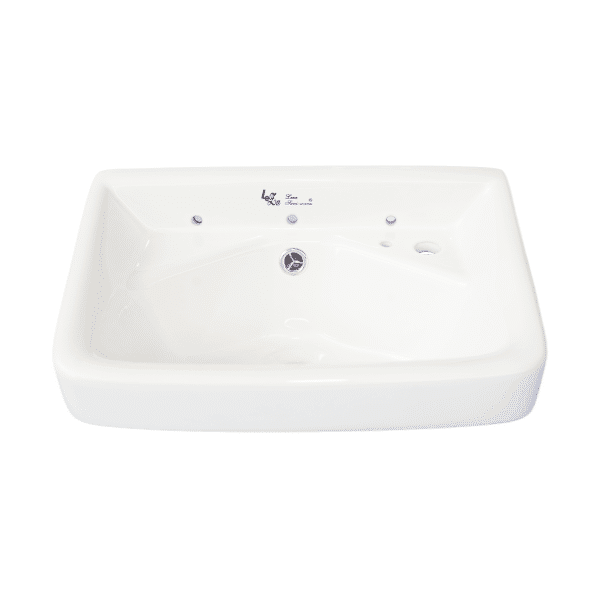Guide to Choosing Wash Basins and Sinks
Wash basins and Sinks are essential equipment in kitchens and bathrooms. When choosing, in addition to considering the appearance design and wash basin styles, it is more important to consider the characteristics and advantages and disadvantages of different materials in order to make the most suitable choice for your needs.

Outline
Wash Basin Materials
Common wash basin materials include ceramic, stainless steel, glass, engineered stone, and natural stone.
- Ceramic: Ceramic wash basins are the most traditional material, affordable, diverse styles, durable and easy to clean. However, ceramic wash basins are quite heavy and require special care during installation.
- Stainless steel: Stainless steel wash basins are corrosion resistant, heat resistant and easy to clean, and also affordable. However, stainless steel surfaces tend to stain, so regular cleaning is required.
- Glass: Glass wash basins have a fashionable, smooth and transparent appearance, and good light transmission, making them popular with modern consumers. However, glass wash basins are more expensive and prone to scratching, requiring careful use.
- Engineered stone: Engineered stone wash basins are made of a mixture of resin and mineral powder, durable, scratch resistant, heat resistant and easy to clean. They also come in a variety of styles and colors to meet different consumer needs.
- Natural stone: Natural stone wash basins have a natural texture and feel, with a noble and elegant appearance, making them popular with consumers. However, natural stone wash basins are more expensive and require regular maintenance.
Kitchen Sink Materials

Common kitchen sink materials include zinc alloy, stainless steel and engineered stone.
- Zinc alloy: Zinc alloy sinks are made of a mixture of zinc, aluminum, magnesium and other metals, lightweight, corrosion resistant and easy to clean, as well as affordable. However, zinc alloy sinks are prone to scratching and require careful use.
- Stainless steel: Stainless steel sinks have similar properties to stainless steel wash basins, corrosion resistant, heat resistant and easy to clean, as well as affordable. However, stainless steel surfaces tend to stain, so regular cleaning is required.
- Engineered stone: Engineered stone sinks have similar properties to engineered stone wash basins, durable, scratch resistant, heat resistant and easy to clean. They also come in a variety of styles and colors to meet different consumer needs.
Choosing Wash Basins and Sinks

When choosing wash basins and sinks, the following factors need to be considered:
- Space size: The size of the wash basin and sink should match the size of the bathroom or kitchen. For smaller spaces, choose smaller under-counter or integrated counter top sinks. For larger spaces, larger countertop or above-counter basins can be chosen.
- Usage habits: When choosing wash basins and sinks, personal usage habits should also be considered. For example, choose a larger sink if you often need to wash a lot of dishes. Choose a larger wash basin if you need to wash hands frequently.
- Budget: There is a wide range of prices for wash basins and sinks. The budget should be considered when making a selection. For a limited budget, opt for a more affordable ceramic wash basin or zinc alloy sink. For a higher budget, choose a pricier glass wash basin or engineered stone sink.
Caring for Wash Basins and Sinks
Wash basins and sinks easily accumulate dirt and bacteria during daily use, so regular cleaning and maintenance is required.
- Ceramic wash basins: Clean ceramic wash basins with a neutral detergent and soft cloth.
- Stainless steel wash basins: Clean stainless steel wash basins with a neutral detergent and soft cloth. Note that stainless steel surfaces stain easily, so wipe dry after cleaning.
- Glass wash basins: Clean glass wash basins with a glass cleaner and soft cloth. Note that glass surfaces scratch easily, so handle with care during cleaning.
- Engineered stone wash basins: Clean engineered stone wash basins with a neutral detergent and soft cloth. Avoid harsh acidic or alkaline cleaners as engineered stone stains easily.
- Natural stone wash basins: Clean natural stone wash basins with a specialized stone cleaner and soft cloth. Avoid harsh acidic or alkaline cleaners as natural stone corrodes easily.
Our “Bathroom Wash Basins” Series
If you want a high-quality, high-performance, aesthetically appealing wash basin or sink for your bathroom, you should check out our “Bathroom Wash Basins” series. We offer wall-mounted, countertop and vessel basin options to suit your space and decorating style.

Other Reference Articles
Bathroom Renovation Design │ 6 Types of Wash Basin Structures Countertop, Under Counter, Vessel …: This article provides an in-depth analysis of the pros and cons of 6 different wash basin structures, with some real renovation examples and tips.


